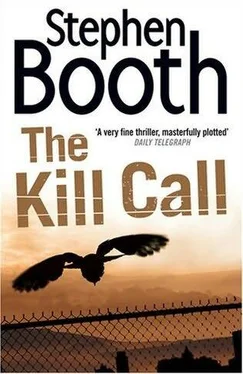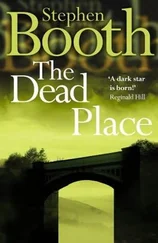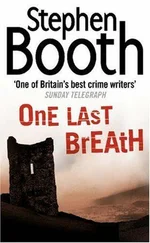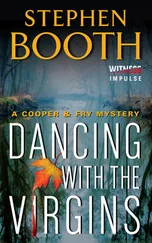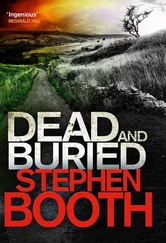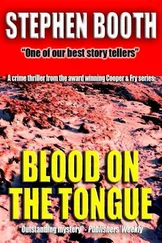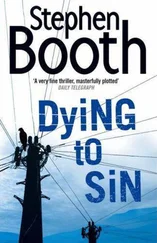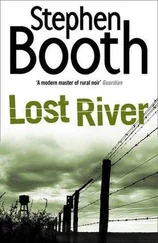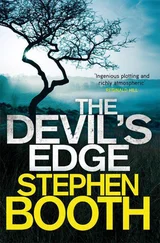Stephen Booth - The kill call
Здесь есть возможность читать онлайн «Stephen Booth - The kill call» — ознакомительный отрывок электронной книги совершенно бесплатно, а после прочтения отрывка купить полную версию. В некоторых случаях можно слушать аудио, скачать через торрент в формате fb2 и присутствует краткое содержание. Жанр: Полицейский детектив, на английском языке. Описание произведения, (предисловие) а так же отзывы посетителей доступны на портале библиотеки ЛибКат.
- Название:The kill call
- Автор:
- Жанр:
- Год:неизвестен
- ISBN:нет данных
- Рейтинг книги:4 / 5. Голосов: 1
-
Избранное:Добавить в избранное
- Отзывы:
-
Ваша оценка:
- 80
- 1
- 2
- 3
- 4
- 5
The kill call: краткое содержание, описание и аннотация
Предлагаем к чтению аннотацию, описание, краткое содержание или предисловие (зависит от того, что написал сам автор книги «The kill call»). Если вы не нашли необходимую информацию о книге — напишите в комментариях, мы постараемся отыскать её.
The kill call — читать онлайн ознакомительный отрывок
Ниже представлен текст книги, разбитый по страницам. Система сохранения места последней прочитанной страницы, позволяет с удобством читать онлайн бесплатно книгу «The kill call», без необходимости каждый раз заново искать на чём Вы остановились. Поставьте закладку, и сможете в любой момент перейти на страницу, на которой закончили чтение.
Интервал:
Закладка:
‘I’ll bear it in mind when I decide to do a runner.’
12
Cooper drove back into the centre of Eyam. Of course, most of the village seemed to have slipped out of real time. The seventeenth century was so powerfully present that he wouldn’t have been too surprised to see the Reverend Mompesson striding down the path from the church in his black robes, Bible in hand, filled with unselfish determination to protect his flock. Or what remained of it.
Cooper remembered from his school visit a couple of plague tableaux in the museum. One represented the last days of John Daniel, plague victim number ninety-two. Number ninety-two? A sentence from a TV series had run irreverently through Cooper’s head — ‘ I am not a number.’ The bubos were clear and livid on John Daniel’s neck, illuminated by a candle burning at the head of his bed.
But the exhibit that had impressed him most was the long list of all the plague victims. Among all the Thorpes, Syddalls, Rowes and Thornleys were the names of two boys, the sons of a widow who had taken in a journeyman tailor as her lodger. It was a delivery of cloth from London for the tailor that had brought the plague to Eyam. The two sons had been dead within a month.
He looked at his list. Two more calls to make in Eyam, following up reports of a disturbance during the night. His instinct was to suspect drunks. The timing was surely too early to be related to the death of Patrick Rawson. But Fry was right to give them to him — everything had to be checked at this stage. Next week could be too late.
A horse was being walked through the village, clacking slowly past the Mechanics Institute. A pallet of cured Danish ham stood outside the butcher’s shop, and stone dust rose from a new housing development. One day, excavation work for new foundations would unearth some of the old plague victims’ graves in Eyam. If it hadn’t happened already.
A display of postcards outside a shop caught Cooper’s eye. He felt in his pocket for some change, and bought a card with a picture of the Plague Cottage, showing the names listed on the plaque at the gate.
Then he made his way back past Eyam Hall to reach the car park on Hawkhill Road, near the museum. He stopped for a moment to admire the way the honey-coloured stone of the houses blended with the foliage on the hillside. Just occasionally, the handiwork of man and nature seemed to fit perfectly together, complementing each other, creating a very satisfying harmony. It was a rare thing. But it happened more often in the Peak District than in other parts of the world. And it was good to get the chance to just stop and stare now and then.
An elderly lady with mobility problems was waiting to cross the road. Before Cooper could move to help her, someone came out of the shop and gave her an arm to lean on. Two cars had stopped, and one of the drivers even waved.
Cooper realized he was having difficulty remembering that he wasn’t on leave any more, because he’d offered to do some jobs for Diane Fry. Get back on duty, Cooper.
Fry had to pass through Eyam to reach Longstone Moor. On the main street, she saw Cooper, his mind clearly somewhere else as usual.
She watched as an old biddy with a stick started to totter across the road, taking her own good time, holding up the traffic for no good reason. Cooper seemed to be about to move towards her. Perhaps he was going to arrest her for obstruction. But someone else got there before him, and the whole performance creaked painfully on before cars were able to begin moving again.
Fry sighed as she turned off the main street towards Longstone Moor. She couldn’t even send him home, because he wasn’t actually supposed to be on duty. And anyway, you took what resources you could get. No point in complaining.
She changed the CD as she drove through a steep-sided dale. Alison Moyet’s The Turn came to hand, and she slipped it into the CD player. A solitary guitar, then the familiar bluesy voice singing ‘One More Time’. Perfect.
Birchlow was an amorphous cluster of gritstone cottages, laid out according to no visible plan. An organic village, then, thought Cooper. A settlement now barely interesting enough to attract a single tourist, unless they were lost. It had nothing to offer in competition with the attractions of areas to the south and west. Unlike Eyam, it had even escaped the effects of the plague.
Cooper knew tiny villages like this. They were dominated by the older generations, the younger population having moved away to find work, or to live in the cities. Few youngsters had any interest in scraping a living from the land. In Birchlow, the natural instinct would be to distrust the unfamiliar. He could expect politeness on the surface, suspicion underneath. Not to mention a tendency for people to conceal the fact that they were capable of any human feelings.
His other visits in Eyam had proved fruitless, as he’d suspected. But the system had flagged the calls up, and his boots were the ones on the ground right now in this area. If what Mr Wakeley had told him had any significance at all, he would find the answer here in Birchlow somewhere.
He dialled Fry’s number to let her know his location.
‘It’s close enough to your scene,’ he said. ‘Could be significant.’
‘Yes, it’s worth following up. But don’t knock yourself out, Ben.’
‘I’m here, so I’ll do the best I can.’
‘As you always do, right?’
Cooper passed a small church, which had one spectacular stained-glass window catching the light. A depiction of a saint, dying in great sanctity, with a quiver of arrows through his throat. Bright yellow daffodils grew in the cottage gardens, contrasting with a red pillar box, and a line of dark grey wheelie bins standing at the roadside, waiting for the refuse collectors. Milk bottles had been left out for the milkman, the way everyone had once done it.
There was a village pub in Birchlow, the Bird in Hand. But no shops. And no post office, of course. There was just a small car park behind the village hall, with a phone box and a parish notice board, and several cars parked up between the stone walls.
Looking for the farm whose land ran up the back of the churchyard, Cooper reflected that there were some characteristics that didn’t endear you to people in villages like this. Being openly inquisitive was one. Knowing too much was another. Unfortunately, a police detective was likely to fall into both categories.
When he came to a sign for Rough Side Farm, he knew he was in the right place. Eyam was clearly visible from here, spread out on the opposite hillside. Some of the land here looked to be good pasture, so good that it ought to be supporting a dairy herd. But who wanted to run a dairy farm when prices for milk were so poor, and the bull calves worthless for meat?
Cooper found the farmer lurking in his workshop, surrounded by tractor parts and bits of oily machinery. He introduced himself, and learned the farmer’s name was Peter Massey. He was a man in his late fifties, but lean and fit-looking, the way that the older generations of farmers often were. Physically, he was probably fitter than a lot of men half his age who did nothing but watch football and drink beer. He could certainly give Matt Cooper a fifty-yard start. No doubt all those hours spent out on the moors had done that for him. In a city, a man like Massey would probably credit his physical condition to tai chi or pilates.
Cooper commented on the quality of the land, usually a good ice breaker with a farmer who looked as though he’d been around for a while and could take the credit for it. Across the yard, he could see an empty cow shed, and the padlocked door to what must have been the milking parlour.
‘Yes, it used to be all fields and cows round here,’ said Massey, then paused for a moment. ‘Now it’s just fields.’
Читать дальшеИнтервал:
Закладка:
Похожие книги на «The kill call»
Представляем Вашему вниманию похожие книги на «The kill call» списком для выбора. Мы отобрали схожую по названию и смыслу литературу в надежде предоставить читателям больше вариантов отыскать новые, интересные, ещё непрочитанные произведения.
Обсуждение, отзывы о книге «The kill call» и просто собственные мнения читателей. Оставьте ваши комментарии, напишите, что Вы думаете о произведении, его смысле или главных героях. Укажите что конкретно понравилось, а что нет, и почему Вы так считаете.
